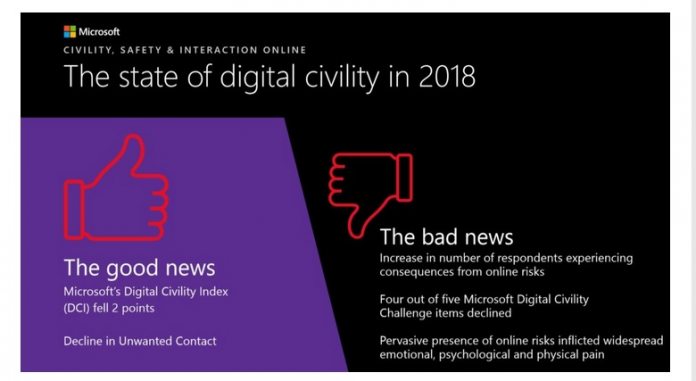Following the UK were the United States, France, Belgium, and Germany rounding out the top 5. Still, Microsoft points out even the best countries still have plenty of work to do to ensure a truly safe online environment. Indeed, in the UK, people still reported receiving unwanted sexual messages or content, being subjected to offensive names, and getting messages from strangers. Microsoft says, “millennials were most likely to be affected by these negative experiences, with 62 percent admitting they had felt moderate to severe pain.” Elsewhere, “teenage girls were also more likely than boys to suffer.” Jacqueline Beauchere, Chief Online Safety Officer for Microsoft, said the following about the results: “On this international Safer Internet Day, we’re reminding people about our Digital Civility Challenge: four practical principles for safer and healthier online interactions. Everyone can commit to the challenge actions this Safer Internet Day and pledge to adopt positive online habits and practices throughout the year.”
Guiding Principles
Microsoft also detailed some principles for ensuring a safe online environment:
“Live the Golden Rule by acting with empathy, compassion and kindness in every interaction, and treat everyone you connect with online with dignity and respect. Respect differences, honor diverse perspectives, and when disagreements surface, engage thoughtfully, and avoid name-calling and personal attacks. Pause before replying to things you disagree with, and don’t post or send anything that could hurt someone else, damage a reputation, or threaten someone’s safety. Lastly, stand up for yourself and others by supporting those who are targets of online abuse or cruelty, reporting threatening activity, and preserving evidence of inappropriate or unsafe behavior.”




